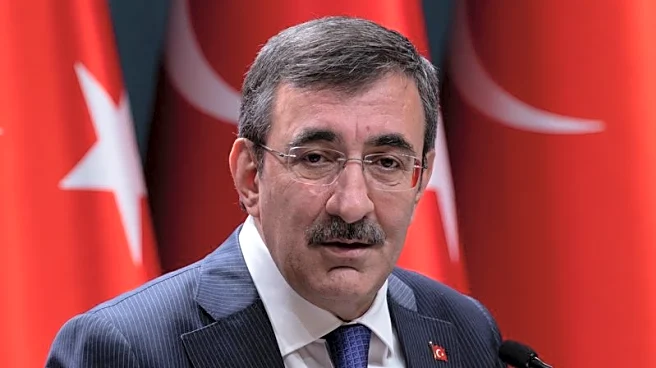What is the story about?
What's Happening?
An EU audit has highlighted significant medicine shortages across the European Union, affecting pharmacists and patients alike. The audit found that the 27 EU member states have been critically short of 136 drugs, including essential antibiotics and heart attack treatments, between 2022 and 2024. Belgium has reported the highest number of critical shortages, with no alternatives available for over a dozen medications in 2024 alone. The shortages are attributed to supply chain issues and the EU's heavy reliance on Asia for key drug components, with 70% of active pharmaceutical ingredients sourced from Asian producers. Additionally, inefficiencies within the EU internal market, such as varying drug prices negotiated by national authorities, contribute to the problem. This has led to local shortages where medications are unavailable in one country but accessible in another.
Why It's Important?
The chronic drug shortages pose a significant risk to public health services across the EU, potentially overloading systems and causing delays in patient care. The reliance on Asian suppliers for pharmaceutical ingredients highlights vulnerabilities in the EU's supply chain, which could be exacerbated by geopolitical tensions or disruptions. The situation underscores the need for improved manufacturing capabilities within the EU to ensure a stable supply of essential medications. Pharmacists are facing increased workloads, spending significant time managing shortages, which impacts their ability to serve patients effectively. The shortages also create anxiety among patients who may not receive their medications on time, affecting their health outcomes.
What's Next?
The European Commission has proposed a 'critical medicines act' to boost manufacturing within the EU and reduce dependency on external suppliers. This includes incentives for local production and a shift away from price as the primary criterion for procurement contracts. Additionally, a 'stockpiling strategy' has been introduced to coordinate medicine stocks and ensure availability during crises. These proposals are currently under negotiation with the European Parliament and member states, a process that may take time. The EU is hopeful that these measures will significantly address the drug shortage issue, although implementation and results may not be immediate.
Beyond the Headlines
The drug shortages in the EU highlight broader issues of global supply chain dependencies and the need for strategic autonomy in critical sectors. The situation may prompt discussions on ethical considerations regarding access to essential medications and the role of international cooperation in ensuring equitable distribution. Long-term shifts may include increased investment in pharmaceutical research and development within the EU, fostering innovation and reducing reliance on external sources.

















